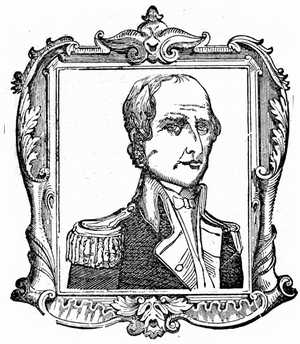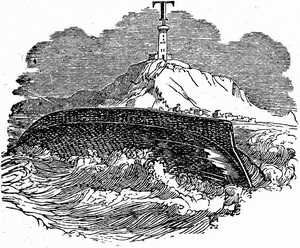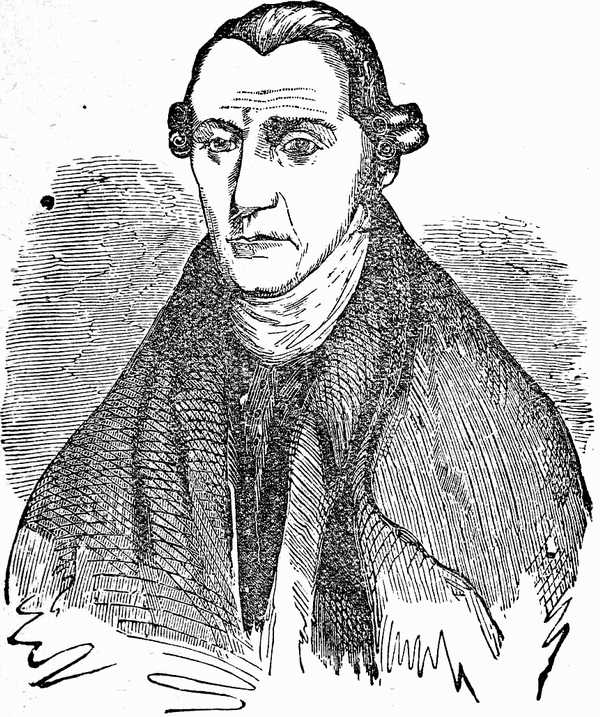Thrilling Incidents In American History
• Preface
Revolutionary War
• Opening Of The Revolution
• The Boston Massacre
• Affair of the Sloop Liberty
• Affair of the Gaspee
• The Tea Riot
• The Boston Port Bill
• The First Continental Congress-Consequent Parliamentary proceedings
• Organization of the Minute-Men
• Patrick Henry-Second Provincial Congress-First Military Enterprise
• Battles of Lexington and Concord
• Battle of Bunker's Hill
• Capture of Ticonderoga
• Second Continental Congress-Washington's Appointment
• Siege of Boston
• Incidents at the Evacuation of Boston
• Burning of Falmouth
• Arnold's Expedition to Quebec
• Siege of Quebec, and Death of Montgomery
• Scenes at Quebec during the Siege
• Expedition against Charleston
• The Declaration of Independence
• The Battle of Long Island
• Washington's Retreat through New Jersey-Capture of General Lee
• Battle of Trenton
• Battle of Princeton
• Capture of General Prescott
• Battle of Brandywine
• Battle of Germantown
• Battle of Red-Bank
• Attack on Fort Mifflin-Retirement of the Army to Valley Forge
• Battle of Bennington
• Murder of Miss M'Crea
• Battle of Stillwater
• Battle of Bemis' Heights, and Retreat of Burgoyne
• Capture of Forts Clinton and Montgomery
• Surrender of Burgoyne
• The Treaty with France
• Attack on Savannah, and Death of Pulaski
• Storming of Stony Point
• General Sullivan's Campaign against the Mohawks
• Tarleton's Quarters
• Battle of Camden, and Death of De Kalb
• Arnold's Treason
• The Loss of the Randolph
• The British Prison-Ships
• Capture of the Serapis
• Putnam's Feat at Horseneck
• Battle of Eutaw Springs
• Wayne's Charge at Green Spring
• Capture of the General Monk
• The Mutinies
• Battle of the Cowpens
• Capture of New London
• Massacre of Wyoming
• Surrender of Cornwallis
War With France
• Capture of L'Insurgente
• The Constellation and Vengeance
War With Tripoli
• Burning of the Philadelphia
• Bombardment of Tripoli
• Loss of the Intrepid
• Expedition of General Eaton
Second War With England
• Battle of Tippecanoe
• Capture of the Guerriere
• Tragical Affair of an Indian Chief
• Battle and Massacre at the River Raisin
• Captain Holmes's Expedition
• Capture of the Caledonia and Detroit
• The Wasp and Frolic
• Gallant Conduct of Lieutenant Allen at the Capture of the Macedonian
• Capture and Destruction of the Java
• Siege of Fort Meigs
• Capture of York, and Death of General Pike
• Defence of Sackett's Harbour
• Defence of Fort Stephenson
• Battle of Lake Erie
• Battle of the Thames
• Gallant Action of Commodore Chauncey under the guns of Kingston Citadel
• The Sacking of Hampton
• Capture of the Peacock
• Massacre at Fort Mimms
• Surrender of Weatherford
• Battle of Niagara
• BattIe of New Orleans
War With Mexico
• Battle of Palo Alto
• Battle of Resaca de la Palma
• Capture of Monterey
• Battle in the Streets of Monterey
• Thrilling Scenes in the Battle of Buena Vista
• Bombardment of Vera Cruz
• Battle of Cerro Gordo
• Battles of Contreras and Churubusco
• Storming of Chapultepec


Colonel Pickering.
PATRICK HENRY -- SECOND PROVINCIAL CONGRESS -- FIRST MILITARY ENTERPRISE.
 HE example of Massachusetts in preparing for defence was followed by the other
provinces; and warlike counsels were boldly broached in the
provincial assemblies and congresses.
When (March 23) some members of the
Virginia assembly urged the postponement of these preparations, reminding their
colleagues of the power of Britain and the comparative weakness of America,
and insisting that it would be time enough to fly to arms when every
well-founded hope of peace had entirely vanished, - Patrick Henry, with
vehement and victorious eloquence, contended that that time had already come.
"It is natural," said he, "to man, to indulge in the illusions of hope.
We are prone to shut our eyes against a painful truth, and listen to the song
of that enchantress till she transforms us into beasts. There is no longer
any room for hope.
We must fight. I repeat it, sir, we must fight. An appeal to arms,
and to the God of Hosts, is all that is left us. They tell us that we are weak,
and unable to cope with so formidable an adversary. But when shall we be
stronger? Will it be when our supineness shall have enabled our enemies
to bind us hand and foot? Sir, we are not weak, if we make use of those
means which the God of nature has placed in
our power. Three millions of people, armed in the holy cause of liberty, and in
such a country as ours, are invincible by any force which our enemy can
send against us. Nor shall we fight our battles alone. That God who presides
over the destinies of nations;
will raise up friends to aid us. The battle is not to the strong alone; but to
the vigilant, the active, the brave. Besides, we have no longer a choice. If we
were base enough to desire it, it is now too late to retire from the contest.
There is no retreat but in submission and slavery. Our chains are forged;
their clanking may be heard on the plains of Boston. The war is inevitable, and
let it come! Gentlemen may cry, 'Peace! Peace!' but there is no peace. The war
is actuaIIy begun. The next gale that sweeps from the north wiIl bring to our
ears the clash of resounding arms." These last words proved prophetic.
HE example of Massachusetts in preparing for defence was followed by the other
provinces; and warlike counsels were boldly broached in the
provincial assemblies and congresses.
When (March 23) some members of the
Virginia assembly urged the postponement of these preparations, reminding their
colleagues of the power of Britain and the comparative weakness of America,
and insisting that it would be time enough to fly to arms when every
well-founded hope of peace had entirely vanished, - Patrick Henry, with
vehement and victorious eloquence, contended that that time had already come.
"It is natural," said he, "to man, to indulge in the illusions of hope.
We are prone to shut our eyes against a painful truth, and listen to the song
of that enchantress till she transforms us into beasts. There is no longer
any room for hope.
We must fight. I repeat it, sir, we must fight. An appeal to arms,
and to the God of Hosts, is all that is left us. They tell us that we are weak,
and unable to cope with so formidable an adversary. But when shall we be
stronger? Will it be when our supineness shall have enabled our enemies
to bind us hand and foot? Sir, we are not weak, if we make use of those
means which the God of nature has placed in
our power. Three millions of people, armed in the holy cause of liberty, and in
such a country as ours, are invincible by any force which our enemy can
send against us. Nor shall we fight our battles alone. That God who presides
over the destinies of nations;
will raise up friends to aid us. The battle is not to the strong alone; but to
the vigilant, the active, the brave. Besides, we have no longer a choice. If we
were base enough to desire it, it is now too late to retire from the contest.
There is no retreat but in submission and slavery. Our chains are forged;
their clanking may be heard on the plains of Boston. The war is inevitable, and
let it come! Gentlemen may cry, 'Peace! Peace!' but there is no peace. The war
is actuaIIy begun. The next gale that sweeps from the north wiIl bring to our
ears the clash of resounding arms." These last words proved prophetic.
|

Patrick Henry
The provincial congress, which had now (1775) superseded the General Court of Massachussetts, assembling in the beginning of February, published an address acquainting the people, that, from the large reinforcements of troops that were expected at Boston, the tenor of intelligence from Britain, and oiher indications, they had reason to apprehena that the sudden destruction of the colony was intended; and urging in the strongest terms the militia in general, and the minute-men in particular, to spare neither tIme, pains, nor expense, to perfect themselves in military preparation. They also passed resolutions for procuring and making firearms and bayonets, and decreed an issue of provincial bills of credit to the amount of fifty thousand pounds. The military preparations which they recommended were diligently pursued, and artillery and provisions were collected at various places. General Gage was not an inat- tentive spectator of these proceedings. Having learned that some military stores belonging to the colonists were deposited in Salem, he. despatched Colonel Leslie from Castle William, on the 26th of February, with one hundred and forty soldiers in a transport to seize them. The troops, landing at Marblehead, proceeded to Salem; but not finding there the object of their expedition, they advanced the road leading to Danvers, whither the stores had been removed, and reached the drawbridge laid across the river. Here a number of the country people were assembled, and on the opposite side the American colonel, Pickering, had mustered thIrty or forty armed men, and, having drawn up the bridge, stood prepared to dispute the passage of the river. Leslie commanded them to lower the bridge; but, as they peremptorily refused, he was preparing to cross the river in some boats that were moored to the shore, wben the people, who had gathered around him, perceiving his intention, sprang into the boats and scuttled them with axes. The day of this occurrence was a Sunday; and, as most of the neighbouring inhabitants were at church, this circumstance (as Gage was supposed to have anticipated) prevented the diffusion of alarm, and diminished the concourse of armed Americans. A conflict, nevertheless, was on the point of ensuing, when it was averted by the prudent interposition of Barnard, one of the Congregational ministers of Salem, who, finding Leslie determined to cross the river, but willing, if this point were yielded, to content himself with marching thirty paces beyond it, and then return without attempting further progress, prevailed with his country men to indulge the British with this empty triumph, which, indeed, could have been pushed no further, as the stores were already removed, during the delay that had been created. At length the bridge was lowered; and Pickering, with his men still facing the British troops, retired to the line they had measured and marked. Leslie and his soldiers, after advancing to the stipulated point, returned and embarked for Boston. Thus ended the first military enterprise of the Revolutionary War, without effect and without bloodshed; but not without additionally kindling the spirit, the vigilance, and the jealousy of the Americans, and inflaming the bitter animosity progressively created between them and the British soldiery. They declared that Gage and his troops (doubtless encouraged by secret orders from Britain) had treated them as rebels, before the British government itself dared to affix this stigma upon them; and that the previous seizures of arms on their own part in New Hampshire and Rhode Island, were merely retaliatory measures and defensive preparations. In such circumstances, an expedition as harmless as the last was not likely again to occur; and it needed less the sagacity of Patrick Henry to foresee, than his spirit and intrepidity firmly to contemplate, the more serious trial which the resolution of the people of Massachusetts was soon to undergo.
